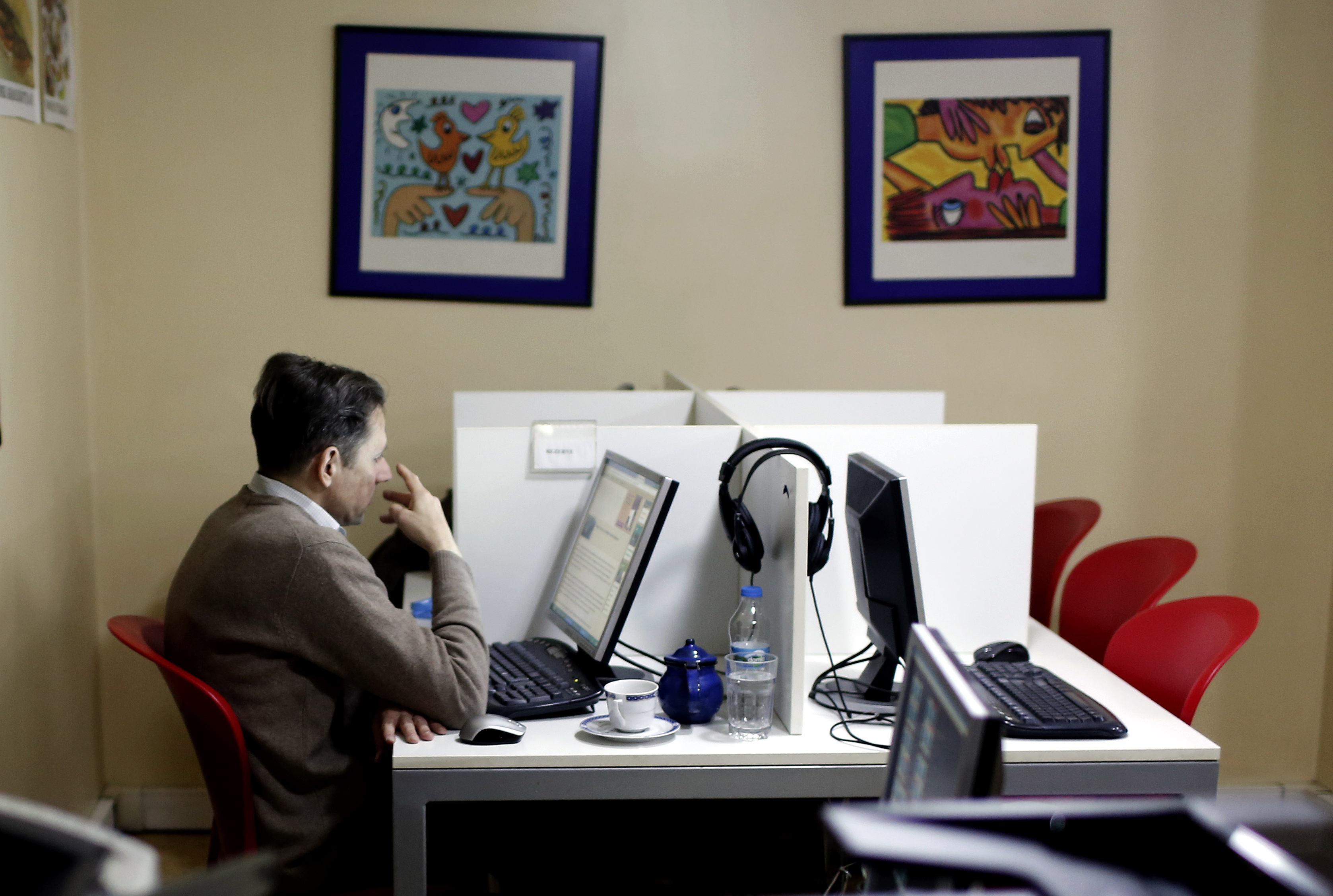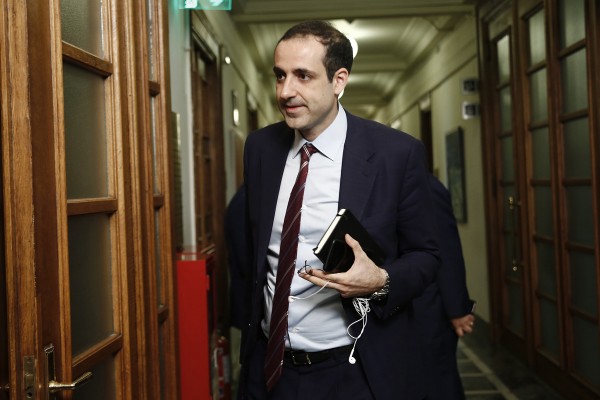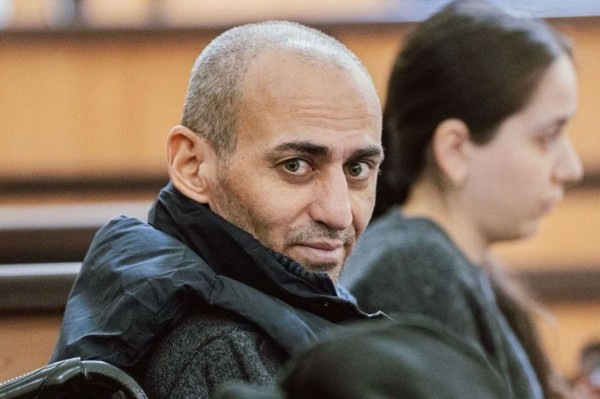Online freedom continues to decline in Turkey, leading to growing self-censorship by its journalists.
Twitter’s latest biannual Transparency Report, covering the first half of this year, showed that Turkish authorities continued to make the most requests to the website to remove or withhold content, accounting for approximately 45 percent of all requests by countries worldwide.
Some 152 journalists are currently behind bars and many more face criminal charges, including several accused of spreading terrorist propaganda through Twitter after leftist hackers released emails from a private account of the country’s energy minister, the son-in-law of President Recep Tayyip Erdoğan.
Many others behind bars have been targeted over social media posts or comments appearing online.
Such pressure can lead to creeping and pervasive self-censorship among journalists, a climate that preceded the July 2016 coup attempt and which many fear has worsened in its aftermath.
Nevertheless, some journalists still go to great lengths to deliver critical coverage and analysis, and independent and alternative media outlets continue to resist government pressure.
Overwhelming increase described
The International Press Institute (IPI) recently spoke with journalists from Turkey about self-censorship among their profession following the coup, especially in light of the arrests of so many of their colleagues. Overwhelmingly, they described an increase.
Özgür Amed – a Kurdish journalist who was imprisoned for over two years after he attended a meeting related to the December 2011 “Roboski” incident, in which a military airstrike killed 34 civilians in south-eastern Turkey – says he noted the change following his release in June.
“Before I was jailed in 2015, a critical social media existed in Turkey,” he recalls. “Now I see many have changed their names on Twitter. Nobody writes critical things anymore, only funny videos left to share. In this last year, many journalists were arrested because they liked something on Facebook, or ‘retweeted’ a post on Twitter. And this, naturally, leads to self-censorship among journalists.”
A journalist from one of Turkey’s biggest newspapers who asked to remain anonymous adds that “everyone in the sector was affected one way or another by the State of Emergency and Decree Laws and other limiting regulations”, noting: “In an environment where you should even be careful of what to wear, those who do not apply self-censorship take the risk to lose their jobs and even get arrested.”
The comment refers to a military officer accused of participating in the coup plot who appeared at trial wearing a t-shirt with the word “HERO”. Following outcry, people found wearing a similar shirt were detained, even though a nationwide clothier had sold the shirt without controversy until the officer wore it to court.
Relationships with government
Erol Önderoğlu, the Turkey representative for Reporters Without Borders (RSF), highlights the fact that journalists whose ideological views are unacceptable to the prevailing powers have been side-lined from mainstream media outlets in recent years, leaving others who are more likely to conform.
“Thousands have been fired…,” he recounts. “These journalists were exiled from mainstream media and pushed to work in small-scale alternative media. So today, the editorial and ideological pressure in the media is completed. Those who still work in these [mainstream] outlets were the ones who internalised the self-censorship.”
Other journalists link self-censorship with working for a media outlet owned by individuals who have links to or commercial relationships with the government.
“Self-censorship is terribly wide among journalists in Turkey,” author and veteran journalist Hasan Cemal says. “Erdoğan’s government managed to establish a climate of fear over media patrons so that everyone knows what to write, what to report and neglects the rest. This suppression and self-censorship have become more and more dominant after the July 15 coup attempt, because the ‘one-man’ regime gains power every day.”
Mehveş Evin, formerly of Milliyet, one of the country’s biggest newspapers, says that she “was fired because I kept writing what I want”. Now with the independent news portal Artı Gerçek, Evin observes that even large media groups are not immune from pressure in terms of which topics may be reported.
“Today, Doğan Group, one of the largest media groups in Turkey, is seen as an opposition, independent group, yet they [too] are facing dramatic pressure,” she comments.
A common critique is that Turkey’s mainstream media has become so tightly attached to the government that it has lost its critical edge.
“Those outlets became standardised, using even identical headlines, especially after July 15,” Kurdish writer and journalist Amed Dicle says.
Journalists left with no place in the mainstream media must work in smaller outlets, mainly online news portals, where high financial penalties and other sanctions are more easily avoided. But that situation will not last and pressure is being brought to bear on alternative media outlets.
Alternative media resists
However, journalists with alternative media continue to resist, despite criminal charges, lawsuits and a poor economic climate made worse, in some cases, by de facto government bans on advertising with them.
“Today, newspapers like Cumhuriyet, which is one of the most independent, critical newspapers, have been restricted with such lawsuits,” Evin says.
Observing that “alternative digital media has more freedom compared to printed press and is essential for critical voice”, she emphasises the difficulties those outlets still face: “They want to keep quality journalism, but face financial problems.”
Önderoğlu similarly points out how alternative media outlets continue to report despite harassment and smear campaigns, and the imposition of harsh regulations.
“Small but independent newspapers such as Cumhuriyet, Evrensel, Birgün, Sözcü, keep representing the country’s different voices from different backgrounds, but accordingly face a new lawsuit every day,” he says. “In the last few years, these media outlets were treated as if they are the press organisations of outlawed groups.”
Pro-Kurdish media outlets, which have faced tremendous pressure for decades, have also continued to report.
“Many media organisations and websites were shut down, many Twitter accounts were withheld, including mine,” Dicle recalls. “The major pressure is to silence media and prevent independent voices from reaching people. Compared to mainstream media, the Kurdish press is more accustomed to such oppression. Therefore, it did not affect Kurdish media groups as much as it did mainstream media outlets.”
Today, Turkey’s government exercises strict control over most of the country’s media, targeting alternative media outlets to prevent criticism from being heard. Yet a brave and determined number of the country’s journalists continue to produce independent news and commentary at the risk of their own freedom. Their continuing courage merits our recognition and our support.



